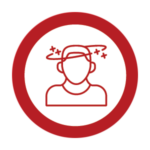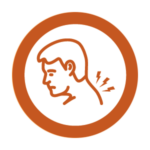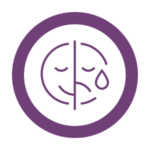The Right Care.
For The Right Results.
Our Services
When evaluating concussions the American Neurology Association recommends six key areas for comprehensive patient evaluation. The concussion center is the only Atlanta based practice focused on these six areas as part of our clinical approach.

Cognitive/Fatigue
Cognitive difficulties include decreased concentration, increased distractibility, difficulty learning/retaining new information, and decreased multitasking abilities. These symptoms can also be accompanied by fatigue throughout the day.

Vestibular
Impairment of the vestibular system – the body’s balance center – can affect one’s ability to maintain focus while moving, coordinate head and eye movement, and maintain an upright and stable position.

Ocular-Motor
Ocular-motor dysfunction occurs when the movement of the eyes, either one or both, is affected. This may result in difficulties bringing the eyes together, moving one’s eyes to track motion, or moving the eyes in tandem.

Traumatic Headache
Post-traumatic headache symptoms include sensitivity to light, sound, and smell, nausea and vomiting, intense headaches that do not abate, difficulty performing activities of daily living, and decreased quality of life.

Cervical
Sometimes, the impact causing the concussion can also affect the extra-cranial region including the neck and/or spinal cord. This type of injury can lead to headaches, muscle weakness, pain, and tingling and numbness throughout the arms and legs.

Anxiety/Mood
After a concussion, someone can have difficulty turning his or her thoughts off. This can lead to increased stress, irritability, anxiety, and other emotional and behavioral changes that negatively impact someone’s life.


